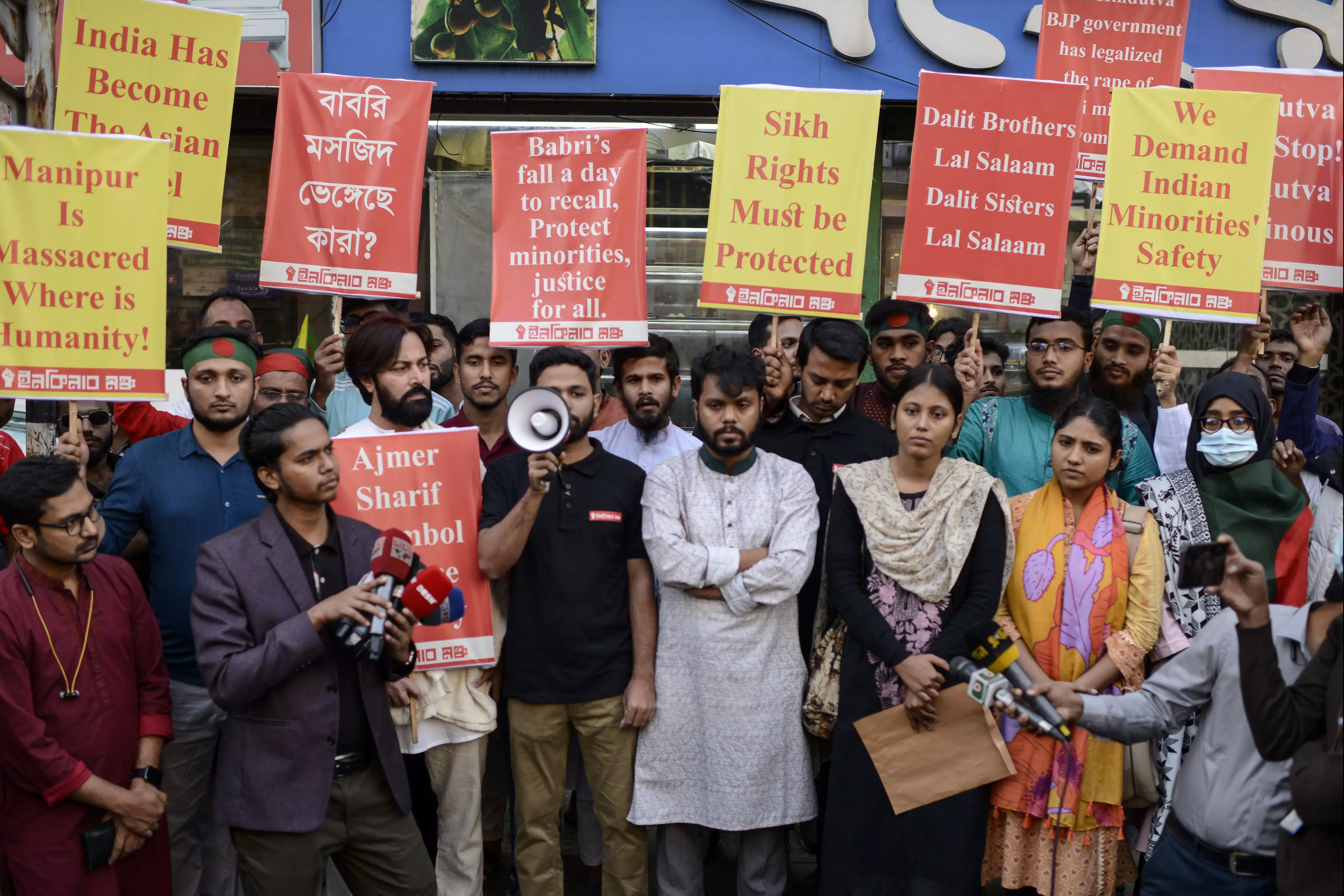
India has had its say on the situation in Bangladesh where the safety of minorities has been under a grave threat. In diplomatic terms, the meetings the foreign secretary Vikram Misiri had with his counterpart Md Jashim Uddin, the chief adviser to the interim regime, Muhammad Yunus, and the foreign affairs adviser, Md Touhid Hossain, were said to have been a “frank exchange of views”.
It was on the cards that Bangladesh would come up with the response that India’s premises were based on “misleading and false information” and that whatever is happening in the country since the fall of Sheikh Hasina Wazed’s government are the internal affairs of a sovereign country that brook no interference.
The response is a giveaway that incidents have taken place and that the administration led by a microfinance lender is struggling to rein in lumpen elements threatening the safety and welfare of the minorities while ransacking and setting fire to their places of worship.
The foreign secretary expressed concerns over the welfare of Hindus regarding attacks on whom have been circulating freely in the media and have triggered protest marches as far away as in Washington where NRIs marched from the White House to air their misgivings over the goings on in Dhaka and elsewhere.
It is clear the Bangladeshis were bristling with this affront to their failure over maintenance of law and order after the hasty retreat of Sheikh Hasina last August came about and the Peace Nobel winning banker was parachuted by certain liberal groups in the USA to be the chief adviser to an administration by bureaucrats.
All the regrettable incidents of attacks on cultural, religious and diplomatic properties that have taken place and recorded in and freely available on the social media were brought out in the dialogue while at the same time seeking to move the ties in a constructive direction.
It might not be helping that Sheikh Hasina, resident in India as a political refugee, has been airing her criticism of her country’s current regime, terming it “fascist”. How can she be restrained from making public her concerns over the direction Bangladesh seems to be headed with religious fundamentalists seemingly driving the prevailing sentiment over the minorities in the Muslim-majority country that includes over two crore Hindus?
The reaction predictably came from political personalities on the other side of the border threatening to take over Kolkata thus riling Mamata Banerjee who brought out a colourful imagery of not eating lollipops if threatened by an “invasion”. The atmosphere of the ties is such that certain excesses in wordplay are only to be expected.
The point is Bangladesh is yet to accept that there is a problem though it must be said that, as with all such incidents of sectarian clashes or minority bashing, members of the majority community have also been helping their friends among the minorities.
The arrest of a Hindu monk who went legally unrepresented at the hearing has added to the tensions. But until Bangladesh looks at the picture as seen from outside, it might be in no position to correct the impression that the minorities there are living in fear.
Bangladesh would have to see beyond the events and tensions of the last six months to realise that the country needs development cooperation in “areas of connectivity, trade, power, energy and capacity building, which are all geared towards the benefit of the people of Bangladesh”, as India put it.
A genuine effort to rein in the fundamentalist elements and assure all its citizens, regardless of their religion, that their safety in the society they live in is important might help, which means Bangladesh must first seek to restore normalcy in its “internal affairs”.
@font-face {font-family:”Cambria Math”; panose-1:2 4 5 3 5 4 6 3 2 4; mso-font-charset:0; mso-generic-font-family:roman; mso-font-pitch:variable; mso-font-signature:-536870145 1107305727 0 0 415 0;}@font-face {font-family:Calibri; panose-1:2 15 5 2 2 2 4 3 2 4; mso-font-charset:0; mso-generic-font-family:swiss; mso-font-pitch:variable; mso-font-signature:-536859905 -1073732485 9 0 511 0;}p.MsoNormal, li.MsoNormal, div.MsoNormal {mso-style-unhide:no; mso-style-qformat:yes; mso-style-parent:””; margin-top:0cm; margin-right:0cm; margin-bottom:10.0pt; margin-left:0cm; line-height:115%; mso-pagination:widow-orphan; font-size:11.0pt; font-family:”Calibri”,sans-serif; mso-fareast-font-family:Calibri; mso-bidi-font-family:”Times New Roman”; mso-fareast-language:EN-US;}.MsoChpDefault {mso-style-type:export-only; mso-default-props:yes; font-size:10.0pt; mso-ansi-font-size:10.0pt; mso-bidi-font-size:10.0pt; font-family:”Calibri”,sans-serif; mso-ascii-font-family:Calibri; mso-fareast-font-family:Calibri; mso-hansi-font-family:Calibri; mso-font-kerning:0pt; mso-ligatures:none;}div.WordSection1 {page:WordSection1;}
